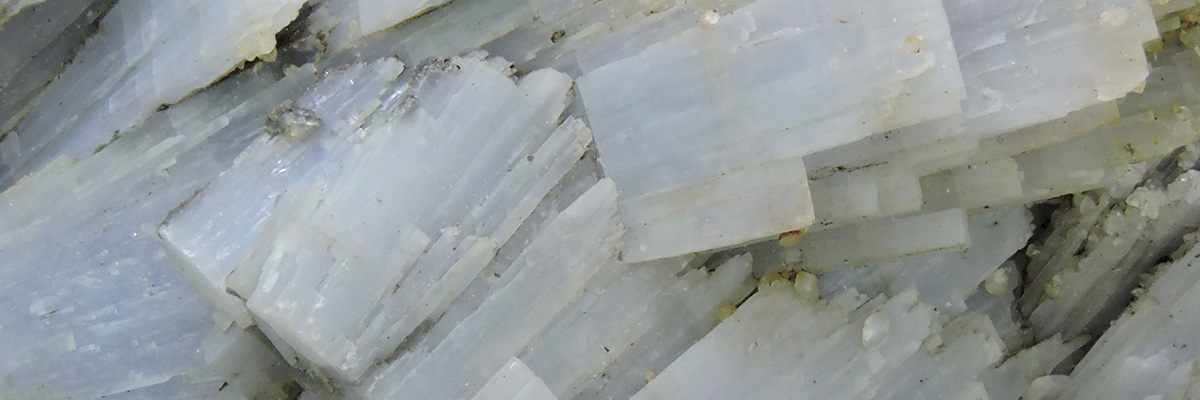Anhydrite is a calcium sulfate mineral belonging to the class of sulfates. It is the anhydrous counterpart of gypsum, meaning it lacks water molecules in its crystal structure. Anhydrite exhibits a range of colors, from white to gray, blue, or even violet, with a vitreous to pearly luster. Its physical characteristics include tabular, prismatic, or massive crystal habits, and it can also occur as compact or granular aggregates.
Usage
Anhydrite has a variety of industrial applications. It is used as a drying agent in the production of cement and plaster, as well as a soil conditioner in agriculture. Anhydrite is also utilized as a filler in the production of paints, paper, and textiles. In the oil and gas industry, it is used to control the density of drilling fluids and to help stabilize wellbore walls.
Gemstone
Anhydrite is not considered a gemstone due to its softness and lack of transparency. However, it is sometimes used for decorative purposes, such as in ornamental carvings or as a mineral specimen for collectors, particularly when it displays attractive colors or crystal habits.
Origin
Anhydrite forms in nature through various geological processes, including the evaporation of water from gypsum or as a result of the interaction between limestone and sulfate-rich solutions. It can also form in hydrothermal veins or as a replacement of pre-existing gypsum deposits under certain conditions, such as elevated temperature and pressure.
Occurrence
Anhydrite is found in many locations worldwide, often in association with other evaporite minerals, such as gypsum, halite, and sylvite. Significant deposits can be found in countries like the United States, Canada, Mexico, Germany, and Russia. Anhydrite is also found in various geological environments, including sedimentary rock formations, salt domes, and hydrothermal veins.
Metaphysical
In metaphysical and spiritual practices, anhydrite is believed to possess a range of properties. The mineral is said to promote emotional healing, self-awareness, and inner peace. It is considered a grounding stone that aids in the release of negative energies and emotions. Additionally, anhydrite is thought to enhance one’s intuition, creativity, and communication skills, fostering a sense of balance and well-being.
| Class | Sulfates |
| Formula | CaSO4 |
| Luster | Vitreous to pearly |
| Hardness (Mohs) | 3 – 3.5 |
| Streak | White |
| Color | Colorless, white, gray, blue, violet |
| Cleavage | Distinct in one direction, poor in another direction |
| Specific Gravity | 2.9 – 3.0 |


